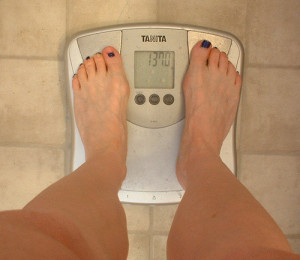If you’re looking for an accurate weight scale, you have three basic options: mechanical, digital, balance. Additionally, you can buy digital models that provide information on your body fat percentage and body mass index. So, which scale should you buy?
While many health professionals recommend that you don’t weigh yourself each day for psychological reasons, an Australian study of 250 women published in the Nutrition Journal found that the women who weighed themselves regularly (daily or weekly) lost significantly more weight than the women who didn’t.
Don’t worry about day-to-day changes in your weight, and certainly not about how much you weigh before and after a workout. Small changes in weight are often due to water loss.
Buying Mechanical Scales
Also known as dial scales, these are the traditional bathroom scales activated when you step on the scale and press down on a spring. They are not as accurate as other scales, but if you don’t need your exact weight, you may be able to get accurate short-term comparisons to your last weight.
For example, if you weigh 137 lbs., the dial scale may show you weight 133 lbs. However, if you lose 3 lbs. your 137 lbs. reading may go do down to 134 lbs., giving you an accurate weight-loss number. One of the main benefits of these scales is that they are the least expensive and last for many years.
Shop for Mechanical Scales
Shopping for Digital Scales
Digital scales are much more accurate than mechanical scales, according to Consumer Reports, but cost more. They come with a variety of features, including body mass index and body fat data. You get BMI readings by inputting your height into the machine, which uses that along with your weight, to give you’re your estimated BMI (a BMI of 30 or more is considered obese).
Body fat scales send an electronic signal up one leg and down the other to estimate how much fat your body contains. Consumer Reports and others have found these scales are not accurate in providing your body fat percentage. Some advocates, however, argue that, like inaccurate mechanical scales, body fat scales let you accurately track changes in your body composition.
If you don’t need your exact body fat percentage, but want to see if your body fat is changing, you might want to buy one of these scales.
Shop for a Digital Scale
Buying a Doctor’s Scale
Doctor’s, or balance, scales are the upright models with the sliding weight you see in your doctor’s office and at gyms and fitness centers. If they’re good enough for doctors . . . ! Make sure you calibrate your scale according to the directions you get with it, and re-check it periodically, especially if you move it.
Shop for a Doctor’s Scales
Bells & Whistles on Bathroom Scales
When considering which scale should you buy, in addition to the basic weighing feature, some scales let you store data for one or more users. For example, you can compare your last five weigh-ins on some models. Some have night-glo lights, while others are solar powered (but will work with you bathroom lights).
Weighing Tip
Weigh yourself at the same time each day. Weighing yourself at different times of the day won’t give you apples to apples data about how you’re doing. Weigh yourself first thing in the morning, or after your first trip to the bathroom.
Additional Resources for which scale should you buy:
A Guide to Body Fat Scales And How To Make Them More Reliable
